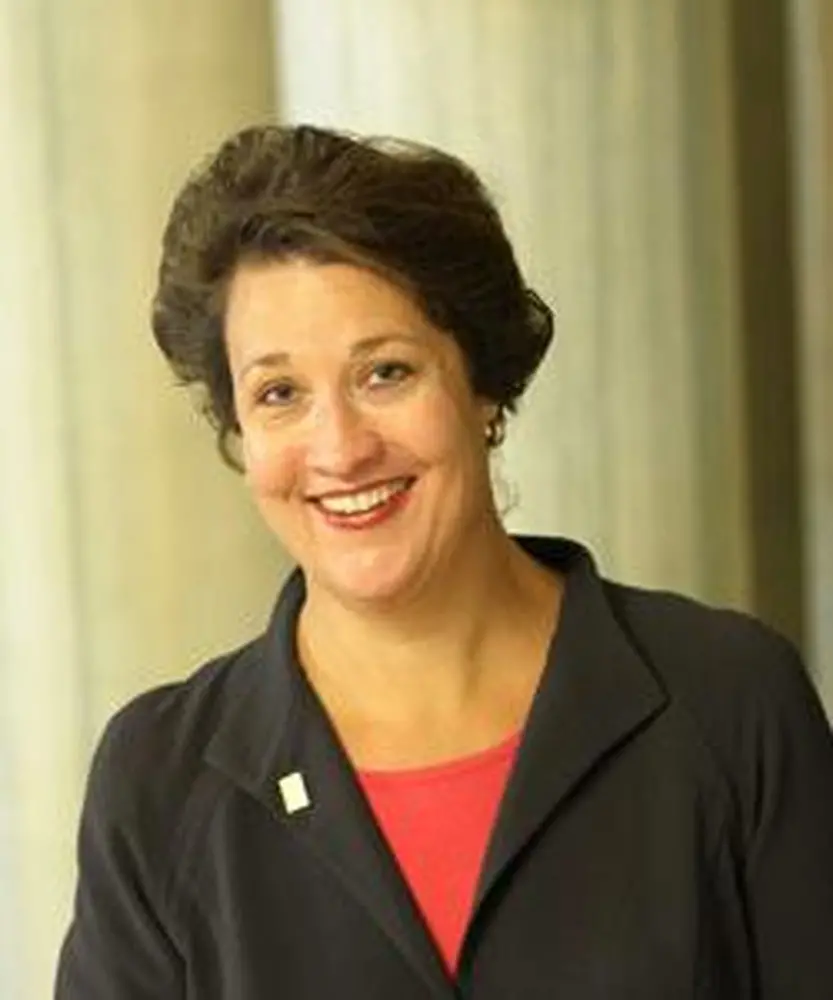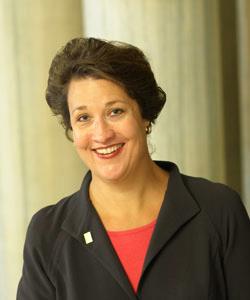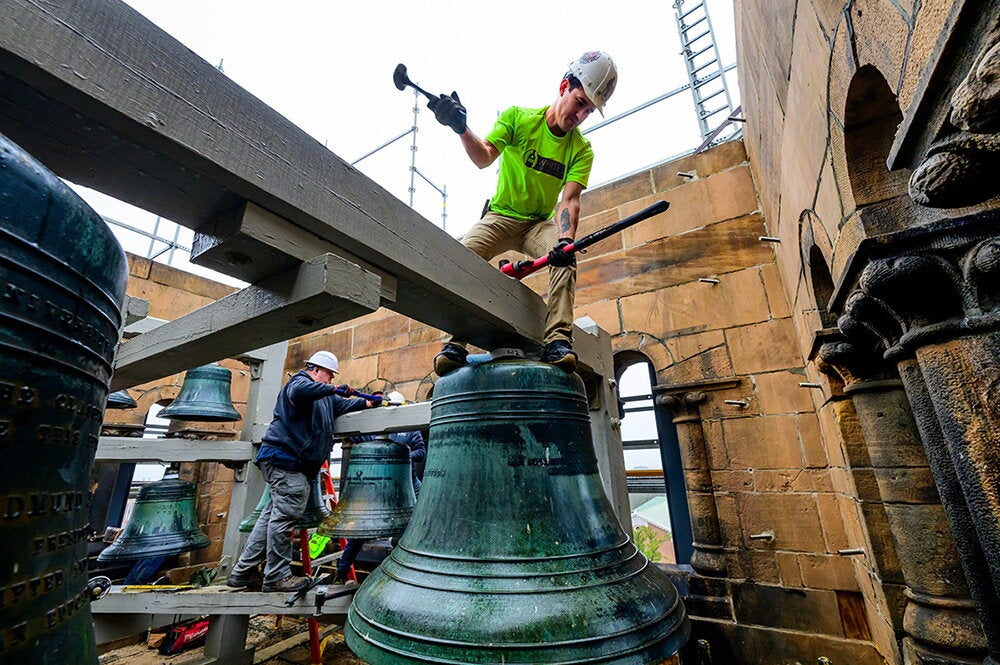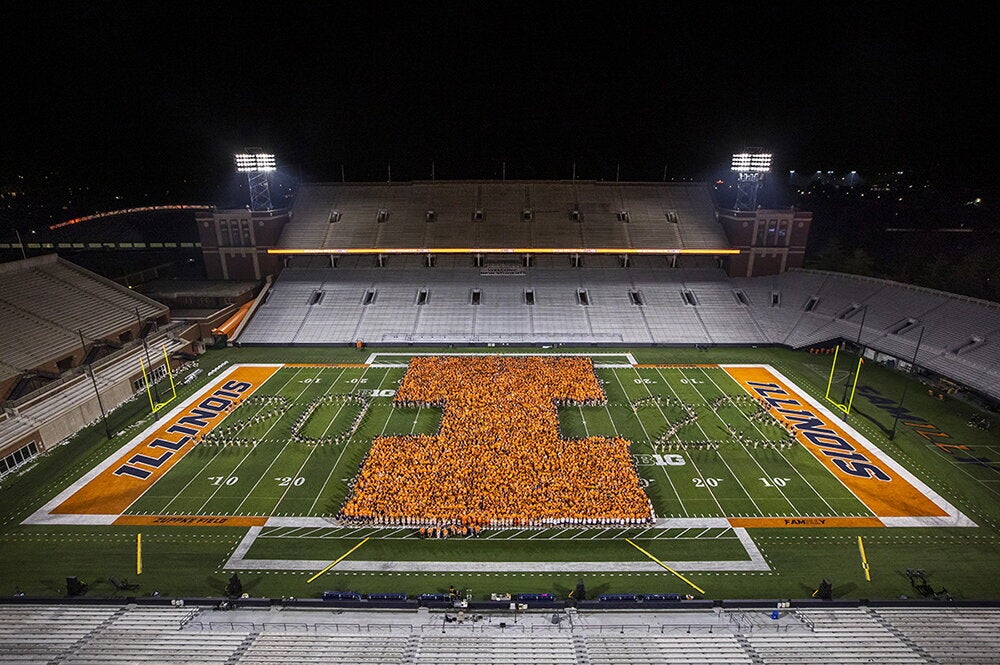

Ruth V. Watkins could not be more enthusiastic. On November 13, she was named by the University’s Board of Trustees as the next Harry E. Preble Dean of the College of Liberal Arts and Sciences, a job she’ll start on January 1st. She’s excited despite the dismal economic outlook and the tight budgets that will demand her attention, despite the tough decisions that await her, and despite having new email friends.
“For someone who is interested in a career in higher education leadership, this is an ideal opportunity,” says Watkins of her new role. “LAS has a deep, long tradition of excellence, an exceptional faculty, and the highest caliber of students at the undergraduate and graduate level. Really exciting and innovative things are happening. It’s really important to remember that a time of challenge creates an opportunity to move forward in bold areas.”
Watkins brings to the position a solid history with the University of Illinois and has a reputation for both action and collaboration. As chief of staff for Provost Linda Katehi, she has built campuswide coalitions to address important academic matters, especially in undergraduate education. Most recently, she worked with teams of colleagues to design a scholarship program for undergraduates and has been the principal investigator for a project by the Lumina Foundation that is increasing the success of transfer students.
“I have relied on Ruth’s wise counsel and administrative work of the highest order from the start,” says Katehi. “She will bring to the job the skills, the intelligence, the knowledge, the experience, and the energy needed to provide first-rate leadership for LAS.”
Teamwork will be at the core of the management style Watkins will bring to LAS, preferring to talk in terms of “we” instead of “me.” She is an advocate of leadership teams and is expected to work closely with department heads and faculty in advancing strategic priorities for the college. She admits to being inspired by the book A Team of Rivals by historian Doris Kearns Goodwin about Abraham Lincoln’s administration—the same book president-elect Barak Obama has also tagged as inspirational—and wants to populate her teams with talented, creative people who will bring different voices to the table, though perhaps not as combatively as did Lincoln’s cabinet.
“It is tempting to surround yourself with people who agree with you, but in fact it’s probably one of the most limiting things you can do,” says Watkins. “What that book shows is that the strong leadership team is an important concept; not the leader as an individual but creating a team with different perspectives, because from that come the most creative, innovative solutions.”
Decisions made by teams of people are more enduring and sustainable in the end and have more impact, believes Watkins. Consequently, she sees her role as both arbiter and cheerleader. She will, necessarily, be instrumental in charting the college’s course and keeping it on task. More important to her, though, is empowering her teams—and the rest of the college—to achieve critical, shared goals of excellence in research, instruction, and engagement. Communication will be important to that end, she says, as will transparency.
Watkins will face major challenges as dean. The remodeling of Lincoln Hall is still mired in state politics even as its deterioration continues. Working with the campus to somehow move that along—and seek support from alumni for costs that won’t be covered by the state—will be a significant undertaking. Budget cuts will also demand uncomfortable changes throughout the college, as will happen in every unit across the campus. Her priorities, though, will be to maintain the quality of education and research that are the college’s lifeblood. “To be competitive for the highest-achieving faculty and the strongest students and to maintain the great faculty we have has got to be number one,” says Watkins. Running a close second is programming, particularly innovations that will set the college apart from its competitors and make it stronger for the future. The time ahead will challenge the college’s most creative thinking, but Watkins believes in the ability of the unit to continue to advance, despite challenging times.
Relationships of trust are essential during difficult times, says Watkins, who believes that her background with the University will be a tremendous asset as she steps into this role. “I know many of the people in the college and hope that I can benefit from good relationships with the departments and faculty and people on the leadership teams in the college,” she says. “It would be extraordinarily difficult to come from outside the institution at a time like this. That people start with a basis of trust will be critical.”
The marker Watkins intends to use in judging her own success as dean will be whether the rest of the college—its faculty, staff, students, and alumni—remain as optimistic about the institution as she is. There is no doubt in her mind of the excellence of the college. “I want to be sure everyone thinks of the college as a supportive context for success,” says Watkins. “Those are important markers because if we’ve done that, then we’ve done a pretty good job.”
Watkins succeeds Sarah Mangelsdorf, who left U of I in August to accept a similar position at Northwestern University. Philip Best, the associate dean for biological, physical, and social and behavioral sciences in LAS, served as interim dean while the college searched for a replacement.
Watkins earned her bachelor’s degree in speech-language pathology from the University of Northern Iowa in 1985, her master’s in child language/speech-language pathology from the University of Kansas in 1987, and her doctorate in child language from the University of Kansas in 1989.
After four years at the University of Texas at Dallas as an assistant professor and program director at the Callier Center for Communication Disorders, she came to U of I in 1993. She served as the associate dean for academic affairs in the College of Applied Life Sciences (now Applied Health Sciences) before becoming associate provost with a focus on undergraduate education and academic affairs in 2003 and vice provost in 2006.


